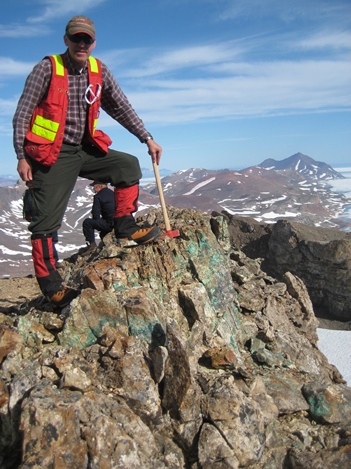Jim Coppard* explains why being a Chartered geologist is beoming more important than ever.
 The base and precious mineral exploration & mining industry exemplifies the importance of having the designation ‘Professional Geologist’ – as, through its chequered history, a number of high-profile scandals have blighted the profession of geoscientist in the eyes of stakeholders, especially those within the investment community. The most noticeable of these incidents was the BREX scandal where blatant ‘salting’ of analytical samples on an industrial scale was finally exposed in 1997.
The base and precious mineral exploration & mining industry exemplifies the importance of having the designation ‘Professional Geologist’ – as, through its chequered history, a number of high-profile scandals have blighted the profession of geoscientist in the eyes of stakeholders, especially those within the investment community. The most noticeable of these incidents was the BREX scandal where blatant ‘salting’ of analytical samples on an industrial scale was finally exposed in 1997.
Codes
The global strengthening of the various Mineral Resource-Reserve Reporting Codes was an immediate and essential reaction to BREX, in an attempt to regain some trust within the financial markets - the introduction of the Canadian National Institute 43-101 being the most noticeable of the global ‘Reporting Codes’.
It is critical that the complete spectrum of stakeholders trusts the facts presented at all stages throughout the mineral exploration and mining cycle, and that the various professionals involved are held personally accountable for their actions.
For a Professional Exploration Geologist like me, the various global Reporting Codes (most mining and/or finance jurisdictions now have them) require me to be fully accountable as the ‘Competent Person’ for the signing off of ‘Exploration Results’, and to be a key member of the team that signs off on the Mineral Resources & Reserves of an orebody.
Importantly the ‘Professional’ is required to have over five years’ experience of working on the particular style of deposit in order to sign off on it, and some countries (such as Chile) are trying to lengthen this period to in excess of 10 years. We are not in a regulated profession within Europe, and consequently we need to ensure that anyone practising as a geoscientist follows an enforceable code of conduct and is maintaining their competency through appropriate CPD.
Legal cases
Unfortunately today the industry is beset with projects that do not fulfill the strict criteria of the various reporting codes. A number of these projects even get funding, go all the way through to production, and then fail dramatically – in Europe a number of such cases have occurred within the last few years. Disappointingly very little has been done so far to hold the various individuals and companies to account. A number of global jurisdictions are now acting upon this and the number of successful legal cases and convictions against individuals and companies is increasing, something that must be applauded.
The Geological Society needs to ensure that all its Chartered Geologists, whatever their field of specialty, truly justify the designation and promote the critical importance of professionalism in all its various forms to the range of stakeholders involved. The global requirements for obtaining and maintaining professional status are rising and the Society must ensure that it keeps pace with these new standards, especially within my sector, the global mining industry. Being a member of Council and of the Professional Committee I attempt to make this happen.
The 25-year anniversary of Chartered Geologist is a significant step on a long journey and throughout that time the tireless work of the scrutineers involved should not be forgotten. It is through their efforts that the Chartered Geologist title has the reached its present high status and is being increasingly recognised in all sectors where geoscientists work.
*Jim Coppard CGeol EurGeol is a consulting exploration geologist working in the global mining industry.